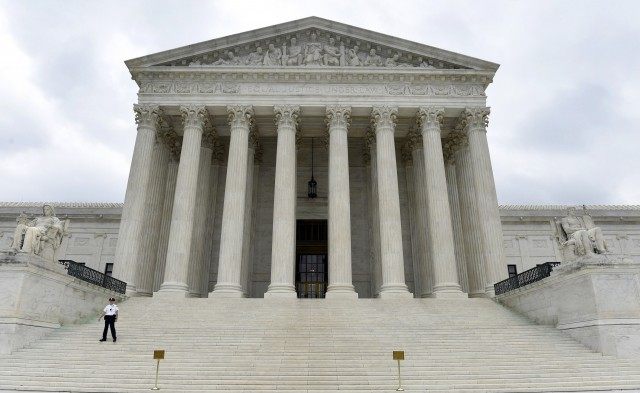The U.S. Supreme Court held oral arguments on April 22 regarding the constitutionality of a federal law that requires raisin farmers to transfer a portion of any raisin crop surplus to the federal government at a severe discount, or pay a fine. The law was passed during the Great Depression as a “New Deal” for agriculture to keep prices up. But the farmers call the law an “illegal taking” under the Fifth Amendment–and they appeared to have a very good day in Court, according to Mark Walsh of SCOTUSblog.
The suit, Horne v. Department of Agriculture, challenges the power of the Raisin Administrative Committee (RAC) under the Agricultural Marketing Agreement Act of 1937. The RAC is led by 47 growers and packers, plus a member of the public, and was created in 1949. Its rulemaking is directly overseen by the United States Department of Agriculture (USDA).
The battle began after marketing orders allowed the RAC to direct that 47 percent of California raisin crop during the 2002-03 season, and 30 percent from the 2003-04 season, be sold to the U.S. government for purposes such as nutrition programs at severe discounts.
Michael W. McConnell, who served 8 years as a federal judge on the United States Court of Appeals for the Tenth Circuit and is now Director of the Stanford University Constitutional Law Center, argued the case on behalf of raisin farmer Marvin D. Horne, his wife, Laura, and 32 other independent farmers that do not sit on the RAC.
Justice Sonia Sotomayor asked McConnell how this case is different from a 1929 decision that upheld Maryland’s tax of ten percent on oyster shells harvested by farmers, since shells were useful in maintaining oyster beds. McConnell cleverly answered that oysters are wild animals, and they are the property of the state. “[R]aisins are not wild animals, even if they’re dancing,” a reference to the famous claymation California Raisins of the 1980s.
Deputy Solicitor General Edwin S. Kneedler, representing the federal government, was hit with a series of sarcastic comments from Justice Antonin Scalia, according to SCOTUSblog: “These plaintiffs are ingrates, right?…You’re really helping them?”
Justice Samuel A. Alito, Jr. joined in. “There are some examples in the briefs that are pretty startling,” Alito stated. “Could the government say to a manufacturer of cellphones, you can sell cellphones; however, every fifth one you have to give to us? Or a manufacturer of cars, you can sell cars in the United States, but every third car you have to give to the United States?”
Kneedler replied that would be different because the raisin marketing order is part of a “comprehensive regulatory scheme,” Justice Anthony M. Kennedy asked: “So, you say if the government took all GM’s cars, then it would be okay?” Kneedler said no.
Justice Kagan asked whether the government must convince the Justices that the raisin marketing order is sensible for it to be upheld, “I mean, we could think that this is a ridiculous program, isn’t that right?” she says. Kneedler replied, “You could think that this is a ridiculous program, but it is one that has been around since 1949.” Overturning the program would have broad consequences, he argued.
Justice Scalia quickly followed up that “It doesn’t help your case that it’s ridiculous, though. You acknowledge that.” Kneedler refused to acknowledge that it is.
SCOTUSblog concluded: “…in trying to win over the Justices, it seemed as though McConnell barely needed to break a sweat.”

COMMENTS
Please let us know if you're having issues with commenting.